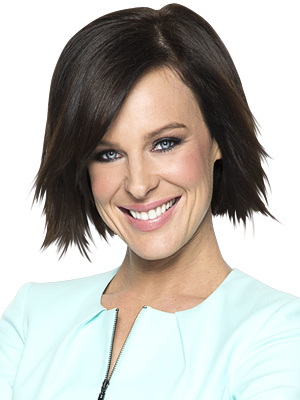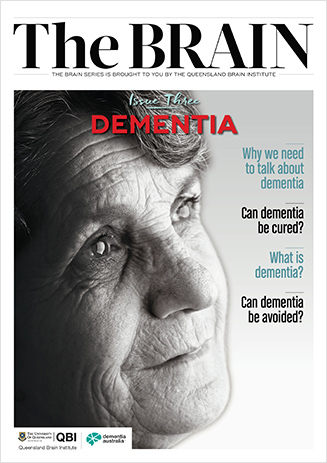Profile: Natarsha Belling
Losing a loved one to dementia has driven TV presenter Natarsha Belling to advocate for better support networks.

National television presenter Natarsha Belling knows what it’s like to lose a loved one to dementia.
She recounts with sadness her experience when a family member was diagnosed. “She was this most beautifully kind person,” says Natarsha. “I was incredibly close to her – she taught me how to sew.”
“She was so physically well, but for her mind, it was just absolutely devastating.”
Natarsha knows from experience that a new diagnosis affects more than just the person living with dementia. “Their entire family is affected, and it’s also a huge emotional and physical burden on the people who are supporting them.”
She emphasises the individuality of each person who has dementia. “They shouldn’t all be boxed into one category,” she says. "There are varying degrees of dementia and it affects everyone so differently.”
“Someone can live with it for only a couple of years and others can live quite successfully for many more years. Subsequently, there need to be different support networks in place.”
After hearing from others living with dementia, Natarsha has become passionate about improving the financial and community support services available for people with dementia, as well as their families.
"Dementia is the greatest cause of disability in older Australians,” she says. “We need a much better support network, especially through funding.”
National television presenter Natarsha Belling knows what it’s like to lose a loved one to dementia. She recounts with sadness her experience when a family member was diagnosed.
“She was this most beautifully kind person,” says Natarsha. “I was incredibly close to her – she taught me how to sew. She was so physically well, but for her mind, it was just absolutely devastating."
Natarsha knows from experience that a new diagnosis affects more than just the person living with dementia. “Their entire family is affected, and it’s also a huge emotional and physical burden on the people who are supporting them.” She emphasises the individuality of each person who has dementia.
"They shouldn’t all be boxed into one category," she says. "There are varying degrees of dementia and it affects everyone so differently.” “Someone can live with it for only a couple of years and others can live quite successfully for many more years. Subsequently, there need to be different support networks in place."
After hearing from others living with dementia, Natarsha has become passionate about improving the financial and community support services available for people with dementia, as well as their families. “Dementia is the greatest cause of disability in older Australians,” she says. "We need a much better support network, especially through funding."
Dementia helpline: 1800 100 500


